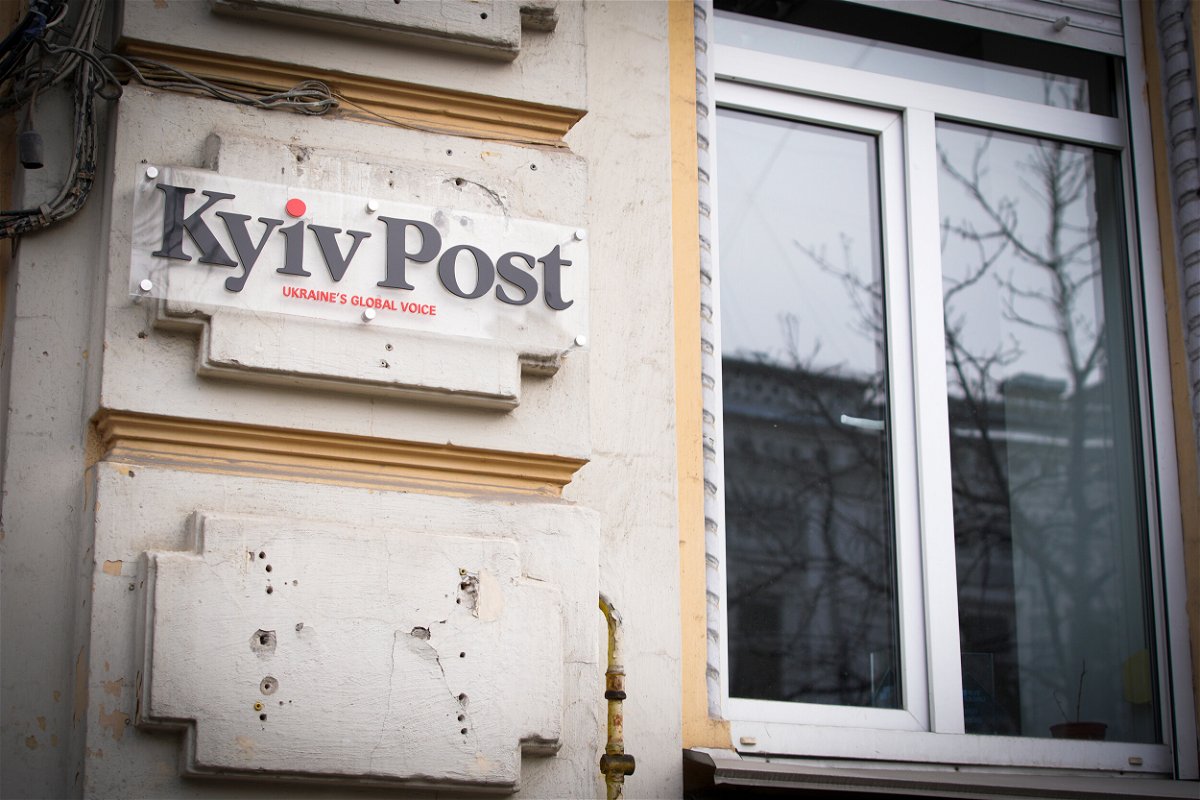‘We want to get the news out’: How Ukraine’s journalists are covering the invasion of their country

By Oliver Darcy, CNN Business
The state of affairs in the Ukrainian capital of Kyiv keeps changing at a breakneck pace. Within days, residents have gone from not believing Russia would attack their country to taking cover in bomb shelters and praying for help. Some have left the city, while others have picked up automatic weapons to defend it against a ground invasion.
All the while, local Ukrainian news organizations on the ground have worked to provide accurate information to their audiences so that they can make informed decisions. Amid the assault on Ukraine, the country’s journalists have continued — under extraordinary circumstances — to do their jobs: reporting the news.
One such outlet is the Kyiv Post, which has carried on with its duties, despite facing such challenges. Bohdan Nahaylo, the paper’s editor-in-chief, spoke with me by phone on Friday and described the multitude of obstacles that the outlet has had to overcome to continue its operations.
Nahaylo said that when Ukraine faced its first wave of attacks, the Kyiv Post was knocked offline by a DDoS cyberattack, which he suspects was executed by Russia. “We were getting huge hits that were incapacitating our systems,” he told me. Nahaylo said that, during that time, the paper continued to publish the news by posting shortened stories on Facebook, Twitter, and LinkedIn.
“Then the other problem was that fear and uncertainty affected the staff,” Nahaylo explained to me. “Obviously they had families and some decided to leave and so they were evacuating and stuck in traffic. Some were in bomb shelters. It was a logistical nightmare created by both the missile strikes, people not being in their places as as result, the system not functioning, and it being much more difficult to communicate amongst one another.”
But the Kyiv Post has continued to pull through, with its staff posting about 25 to 30 stories a day. “We feel it is very important to provide up to date, reliable, objective information,” Nahaylo said. “There is a lot of demand. People read what you are putting out.”
Nahaylo and the journalists who work for him know that there are real risks to their safety right now. “We want to get the news out, but we put the safety of the staff first,” he told me. Nahaylo closed the paper’s offices earlier this week and instructed staff to work from home. “Some of them have left Kyiv. Some are in villages, some have gone to the west of the country, some have left the country,” he said. “So we are very dispersed, but united at will to continue.”
“I’ve told several of my colleagues not to use their names when reporting on the latest developments, to just file as ‘Kyiv Post,'” Nahaylo added. “Because we don’t want them targeted immediately if there is to be a short-term occupation.” Nahaylo said the paper has also backed up its systems so that its archives are not lost. For now, staffers are communicating via Slack, which he described as “very effective,” but also have backup methods that they can use.
“With the spotlight on Ukraine,” Nahaylo said, “It has been a really good opportunity for us to shine and show the world what we can do.”
“Our task is to defend the information space”
Ukraine’s top TV companies are also unified in their resolve to deliver the news to their viewers. Several groups — 1+1 Media, StarLightMedia, Media Group Ukraine, and Intermedia Group — issued a joint statement that said they have suspended commercial breaks and are continuously broadcasting news updates.
“Our task is to defend the information space, to cover events as widely as possible, to debunk fakes and to convey to Ukrainians the most important messages as quickly as possible. And also to help extinguish the mass panic and give people clear instructions on how to act in a particular region at the same time,” the statement said, according to a Google translation. “There are continuous broadcasts on our channels, we have turned off the advertising block and are talking non-stop, so that each of our viewers feels that we are close and receives prompt and truthful information…”
Contingency plans
The TV companies have also been busy “enacting contingency plans that have been in place for many years,” Deadline’s Max Goldbart reported. StarLightMedia’s head of news production, Oksana Dychnich, said that they have long planned for such scenarios and put contingencies into place that are now being activated. Dychnich said that they are “doing our best so we can carry on reporting but feel comfortable from the technological, content and security side.”
“No matter your politics, this is a time when the media should unite the country,” she added passionately. “That is our aim.”
A version of this article first appeared in the “Reliable Sources” newsletter. You can sign up for free right here.
The-CNN-Wire
™ & © 2022 Cable News Network, Inc., a WarnerMedia Company. All rights reserved.